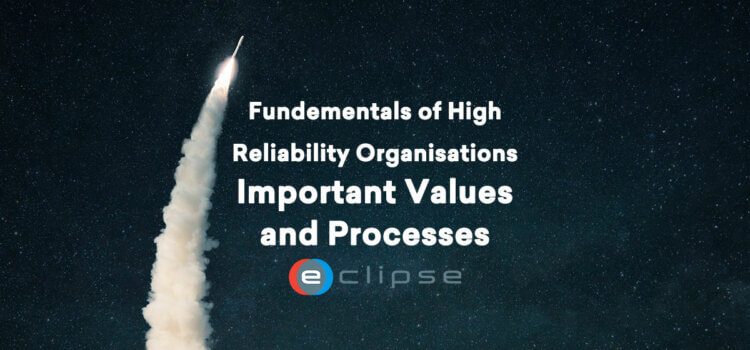
Creating Success for High-Reliability Organizations
24 Jun, 2024
High-reliability organizations (HROs) are a critical part of our society. From building satellites to power plants, HROs have one primary goal: to operate safely, efficiently, and effectively while reducing the risk of accidents or errors that could lead to highly costly events.
Achieving this level of reliability is not easy—it requires organizational elements that facilitate effective decision-making, communication, collaboration, and adaptation. This post explores what successful HROs have in common and how they leverage these characteristics to ensure reliable operations in their particular industries.
Definition and benefits of High-Reliability Organisations
High-reliability organizations (HROs) manage projects that require consistency and dependability. They often operate in complex and high-risk environments, such as Aerospace, Energy, and Healthcare. The concept involves implementing strategies and processes that help increase their trustworthiness.
One of the most critical aspects of any project is its reliability. This refers to the project’s ability to perform its intended function consistently and dependably.
The benefits of working as an HRO are clear; they provide a safer work environment, improved quality of product and service, and more efficient operations. They also prioritize a safety culture where all organization members actively identify, report, and resolve potential safety issues.
By focusing on preventing risks and new projects, HROs can successfully navigate complex and rapidly evolving environments, ultimately achieving better outcomes for all stakeholders.
Communalities among HROs
These organizations are often complex. They manage high-risk systems that require heightened awareness to prevent accidents and mishaps. At their core, HROs are willing to pay a premium price in time or money to execute projects properly.
However, when speed is essential, HROs can also hold very rapid projects because workflow and processes are already clearly in place.
Whether they operate in Defence, Space, Energy, or Health, HROs are committed to minimizing errors, improving processes, and prioritizing safety.
Important processes for HROs
Running projects that require high reliability requires a different focus than most organizations. Below is a list of keywords that are important for all HROs:
- Project Management: Cultivate a collaborative and supportive environment for effective project execution.
- Goal Setting: Formulate clear objectives, expectations, and requirements to guide actions
- Documentation: Establish a defined documentation method for seamless operations.
- Analysis and Strategy: Leverage data and reporting to make decisions rooted in evidence and facts.
- Quality Assurance: Implement robust systems to ensure high standards are consistently met.
- Communication: Promote secure communication across all organizational levels.
- Traceability: Utilise systems that help to understand what happened within the organization.
Essential values for HROs
Several values are attached to HROs. Below you can find a shortlist.
- Accountability: Taking ownership of actions and decisions.
- Adaptability: Embracing change and demonstrating flexibility.
- Security: Ensuring the safety and integrity of processes and data.
- Resilience: Bouncing back from challenges with strength and determination.
- Due Diligence: Conducting thorough research and analysis to make informed decisions.
- Safety: Employing software systems that adhere to stringent security standards.
- Reviewing: Ensure accuracy in all the layers of the project by having an adequate review system.
Causes of lower reliability
Several factors can cause lower reliability for a project, compromising its effectiveness. Perhaps the most obvious are:
- Poorly planned projects can result in low reliability due to inaccurate or incomplete requirements, suboptimal design, or ineffective testing and maintenance procedures.
- Inadequate quality control and testing practices can also contribute to lower reliability. These include insufficient product testing, a lack of verification and validation activities, and failure to incorporate user feedback.
- Environmental factors such as temperature changes, humidity, and vibration can negatively impact reliability.
- Inadequate resources or budget can also lead to lower reliability as corners are cut, and quality assurance is neglected.
To mitigate these risks, project managers should improve their planning, testing, and quality control throughout the project lifecycle.
Working for an HRO?
If you are a director, engineer, project manager, documentalist, quality assurance specialist, or another professional working in an HRO, you know that the industry can be difficult. While it may require work, dedication, and a strong understanding of the project, many tools can help you succeed.
ECLIPSE Software Suite offers several solutions for HRO professionals to help manage projects, documents, and workflows and ensure quality assurance. Please explore our website or contact us to understand how ECLIPSE can help you improve your HRO performance.
Created by Desmond Gardeslen



